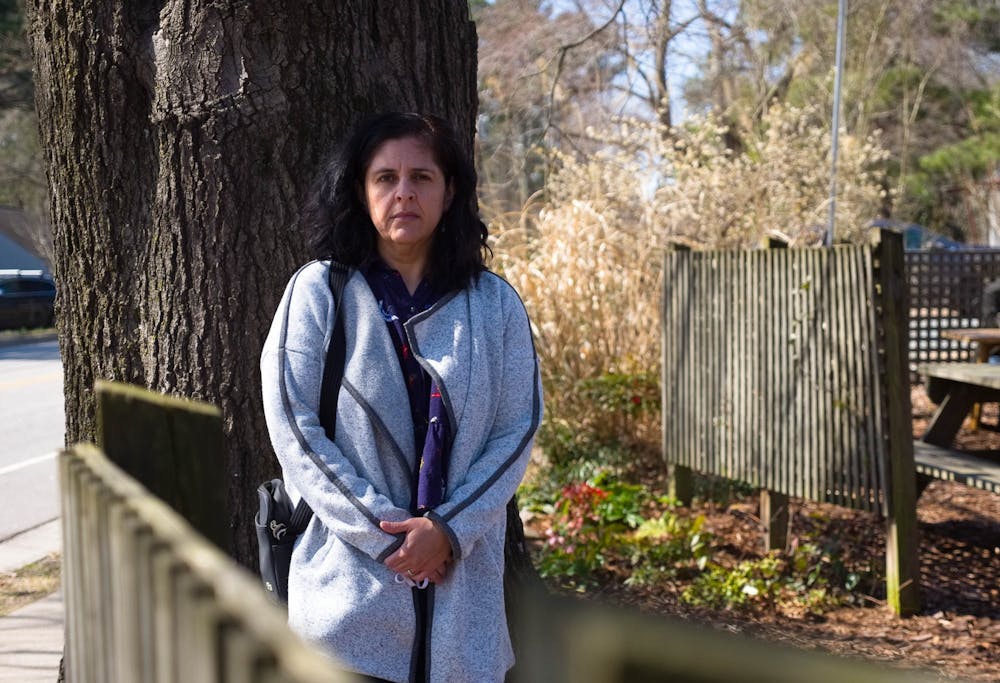The Chapel Hill-Carrboro City Schools Board of Education used an unconventional method to appoint its newest member at a Feb. 18 meeting — a coin flip. Some community members have raised concerns over issues of equity this action created.
Lisa Kaylie, former president of CHCCS’ Special Needs Advisory Council and the CHCCS PTA, won the flip against Carmen Huerta-Bapat, a Latina immigrant and assistant professor with UNC’s global studies program. Kaylie was elected to finish the 10 months left on Amy Fowler's term after she vacated her seat in December to serve on the Orange County Board of Commissioners.
The coin flip method was approved for use after three consecutive rounds of 3-3 tied votes between board members and is allowed within board rules, said Jeff Nash, executive director of community relations for CHCCS. But many community members are frustrated the board did not engage in a discussion about Latinx representation or racial equity before voting.
During the meeting, board members Ashton Powell and Jillian LaSerna voiced their support for Huerta-Bapat. Powell said he had received more emails from Spanish-speaking families in the days leading up to the meeting than he had gotten in the entirety of the past year, and LaSerna read aloud an email she received from one mother in support of Huerta-Bapat.
“Many of us are afraid to advocate for our children and their dreams, and we need someone like Carmen who can lift our voices and make our dreams come true,” the email read.
There is no Latinx representation on the CHCCS board despite the community making up 16 percent of the school population and growing. Huerta-Bapat said Latinx community members often don’t reach out to the board due to fear.
“They feel that if they draw attention to themselves in any way, shape or form, they’re going to be identified and be deported,” she said. “People have dropped off their children at school and not been able to pick them up because they had been deported. I don’t think people understand the fear they live under and the challenges of their daily existence.”
Aside from the brief comments made by Powell and LaSerna, the board did not have a discussion about Latinx representation or racial equity in the meeting before voting. The Chapel Hill-Carrboro NAACP and the Campaign for Racial Equity In Our Schools sent a joint letter to the board on March 3 detailing their disappointment with how the board handled the vote. The letter noted that board members didn’t use the Racial Equity Impact Assessment tool that they committed to using in 2017 to aid decision-making.
The letter also included three requests — that the board include equity counsel at meetings, take part in racial equity training and be more transparent with their deliberations.



